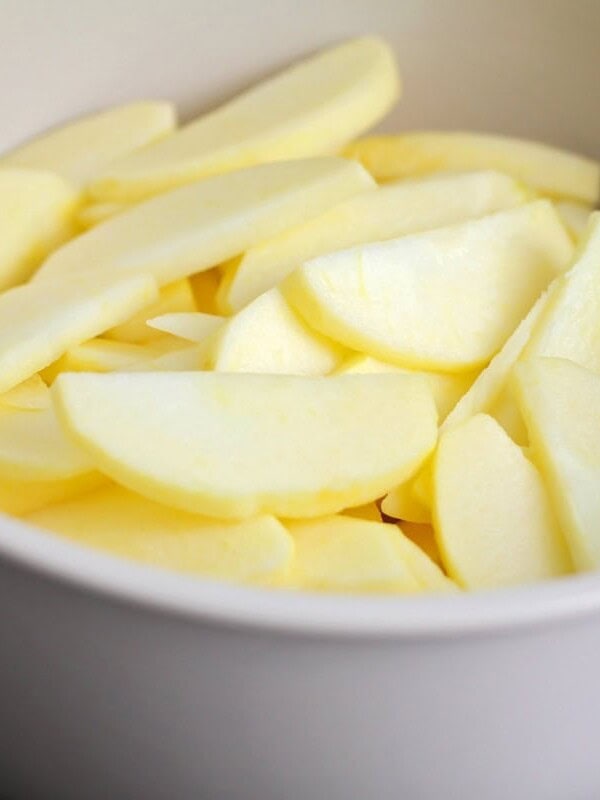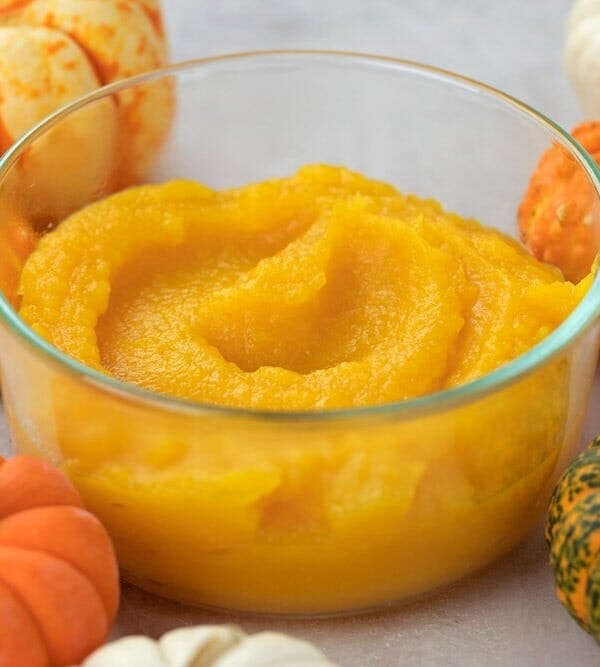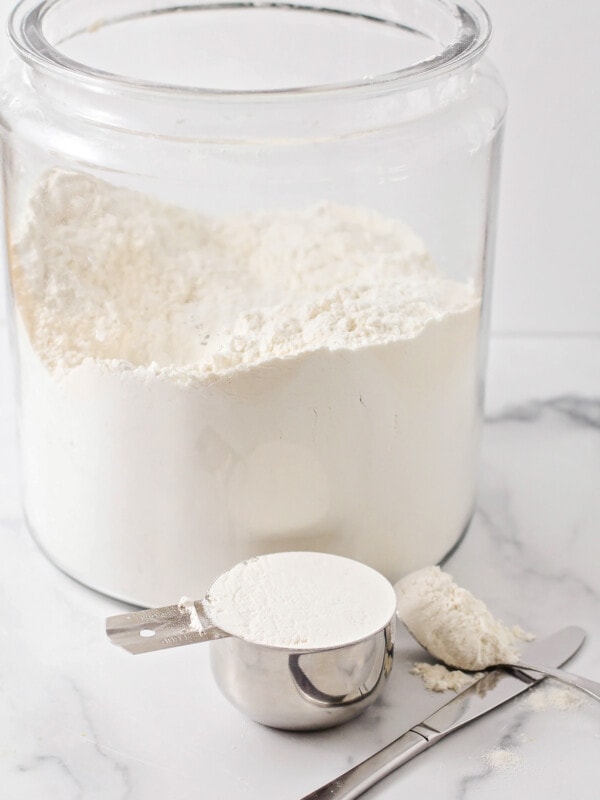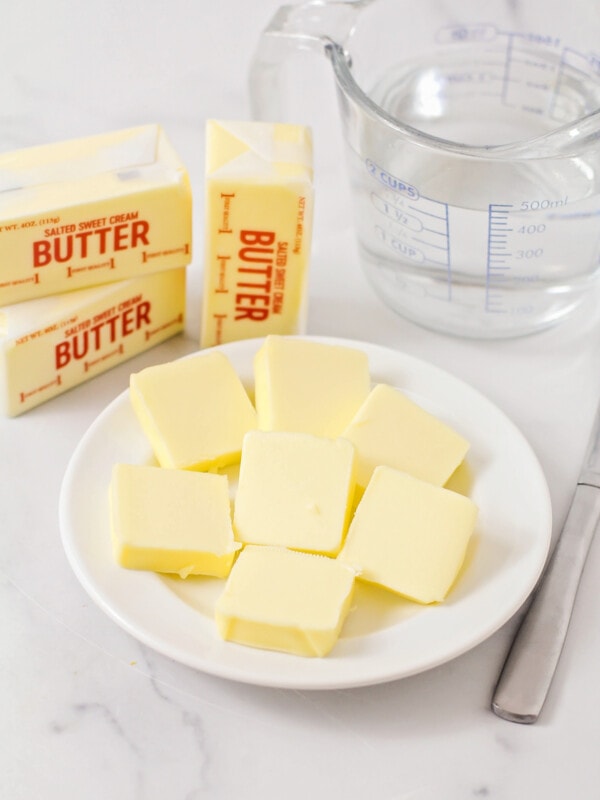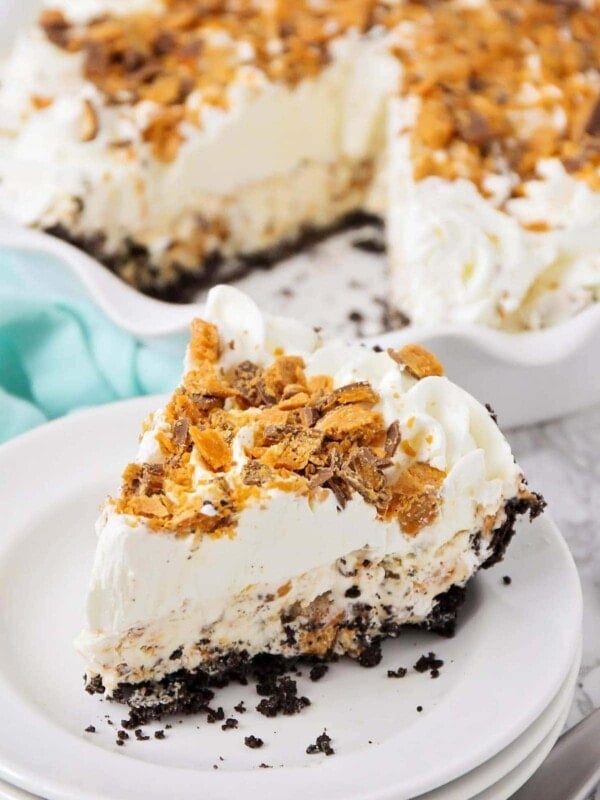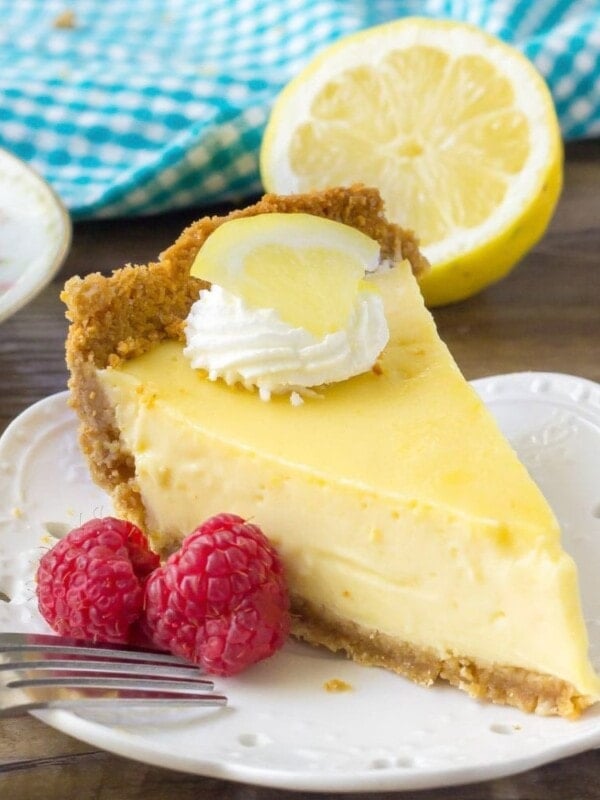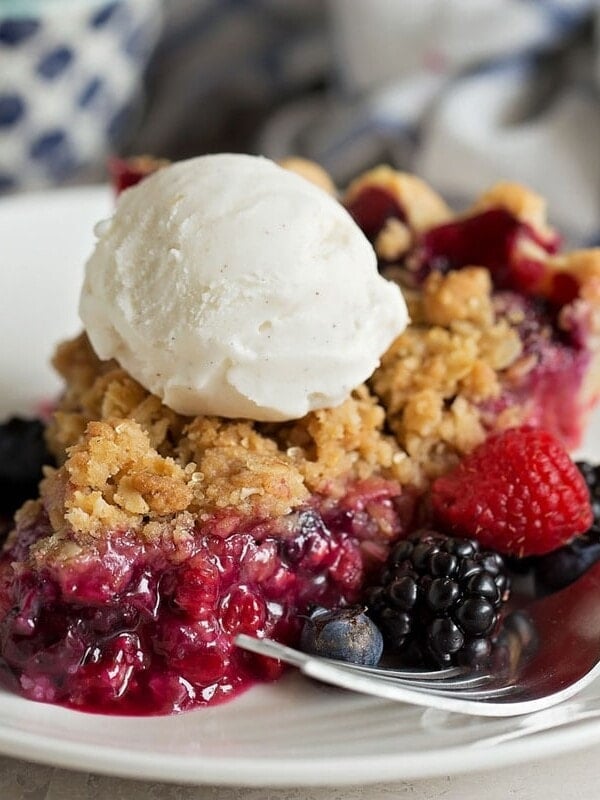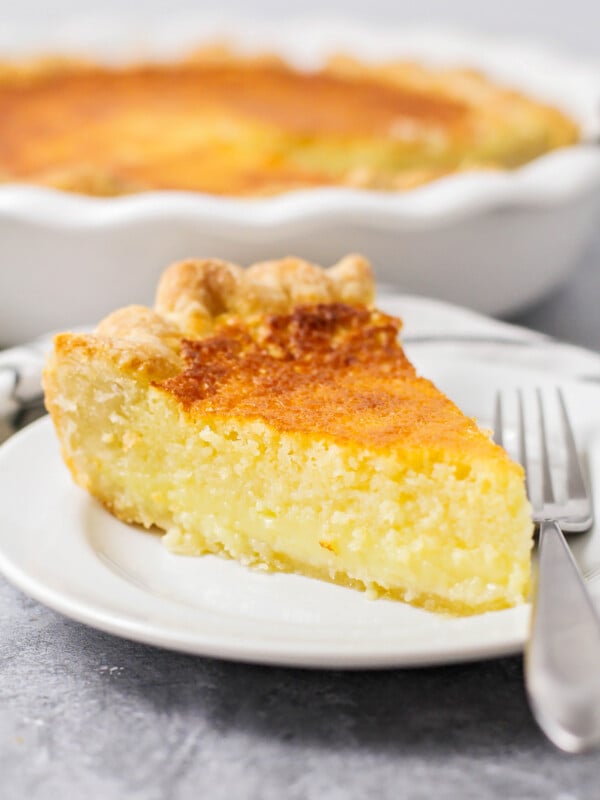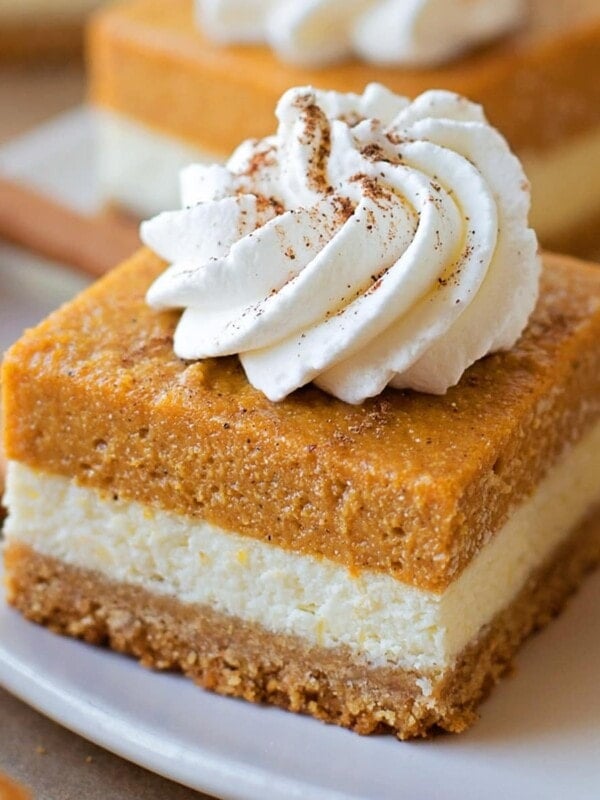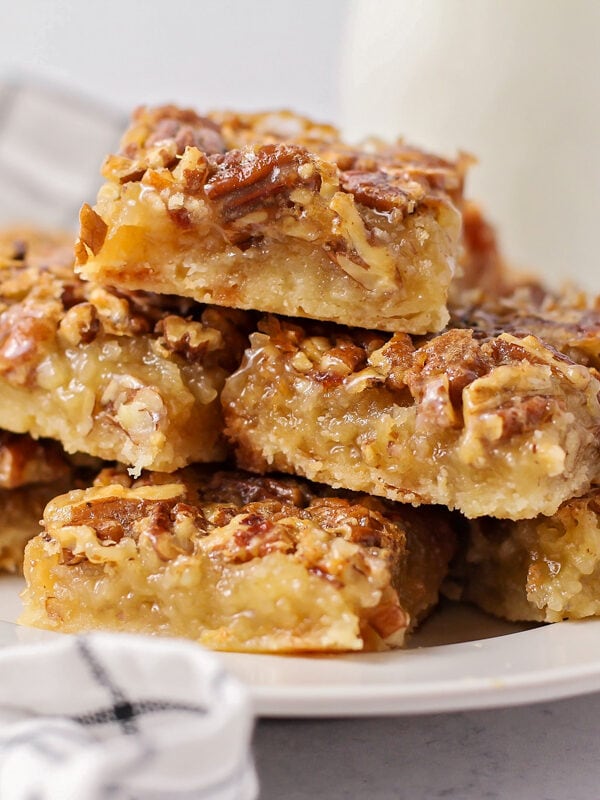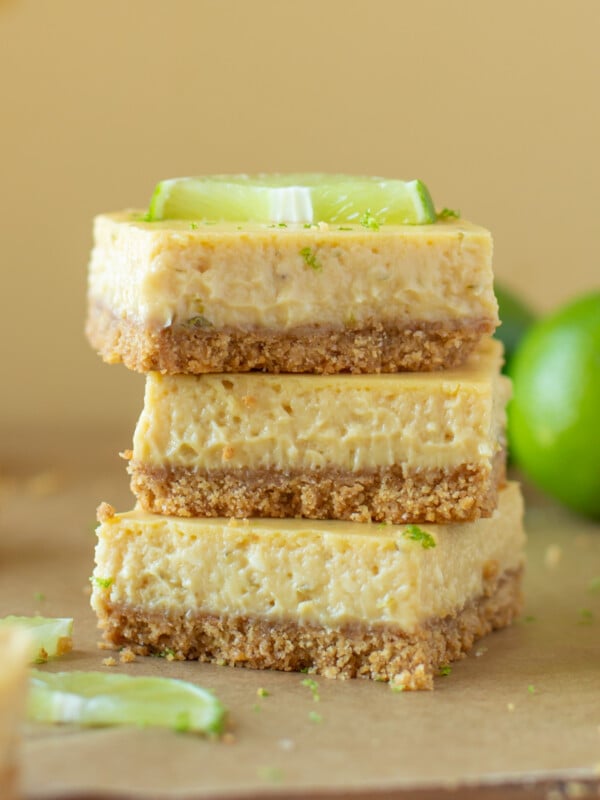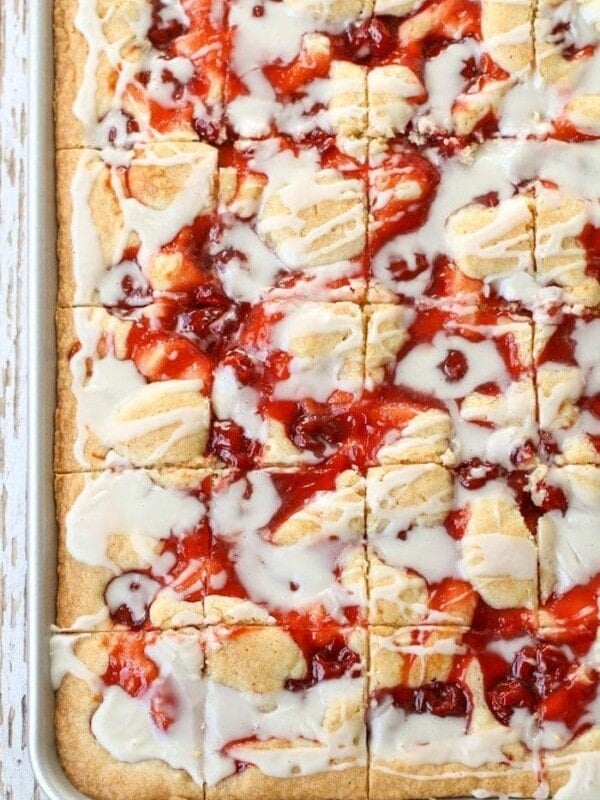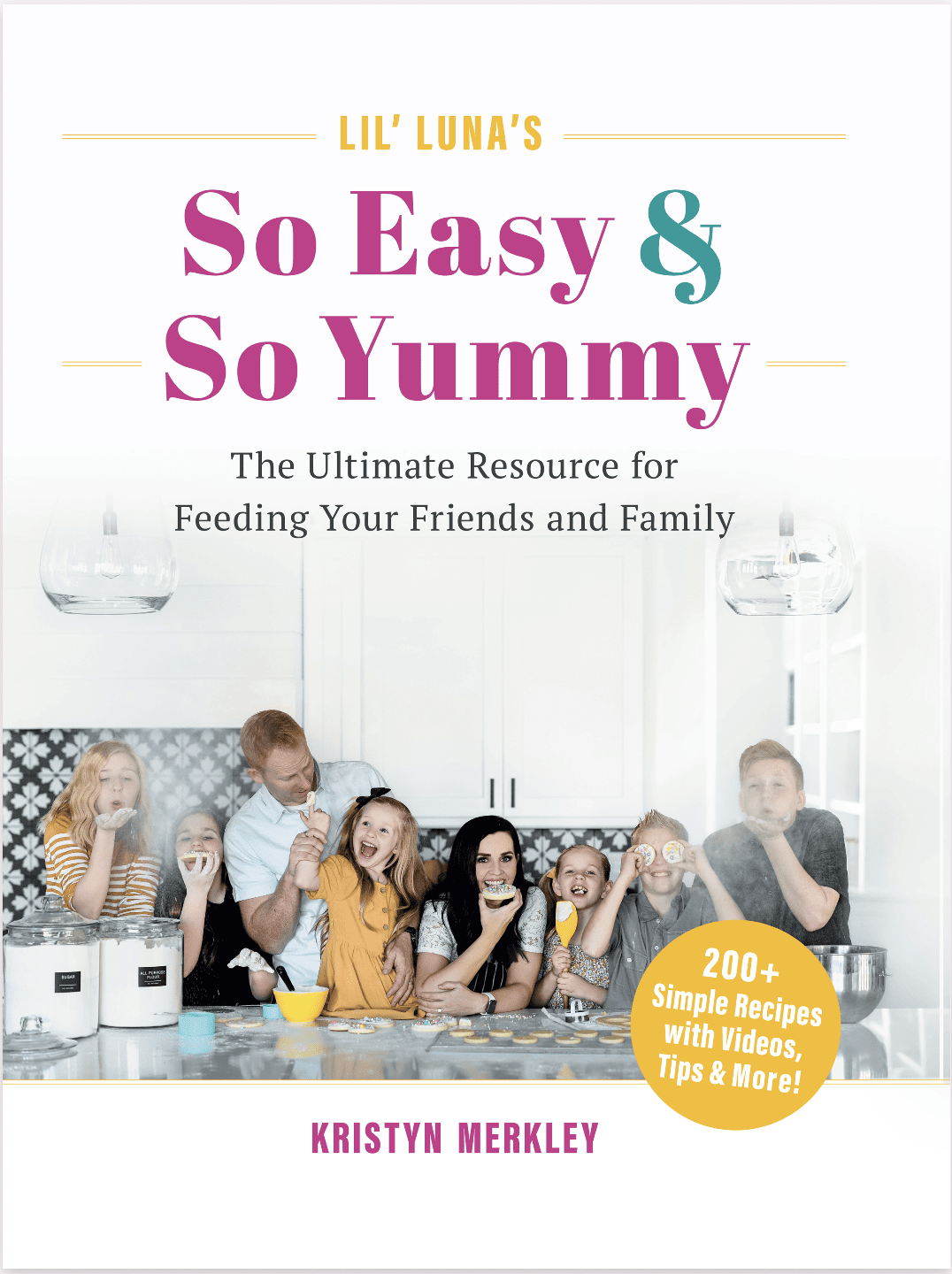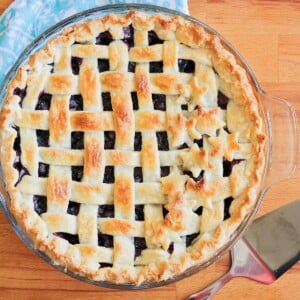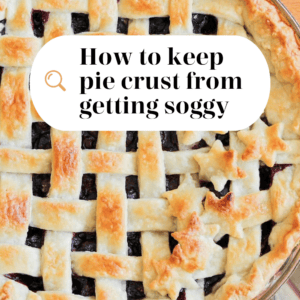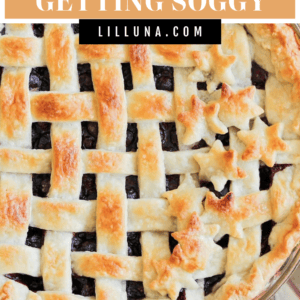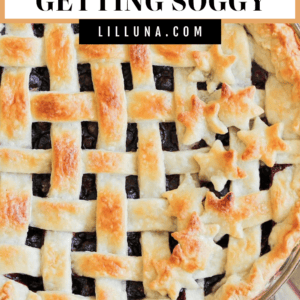This post may contain affiliate links. Please read our disclosure policy.
Pies are meant to have a crisp, delicious crust—not a soggy one! Here’s how to keep pie crust from getting soggy.
Table of Contents
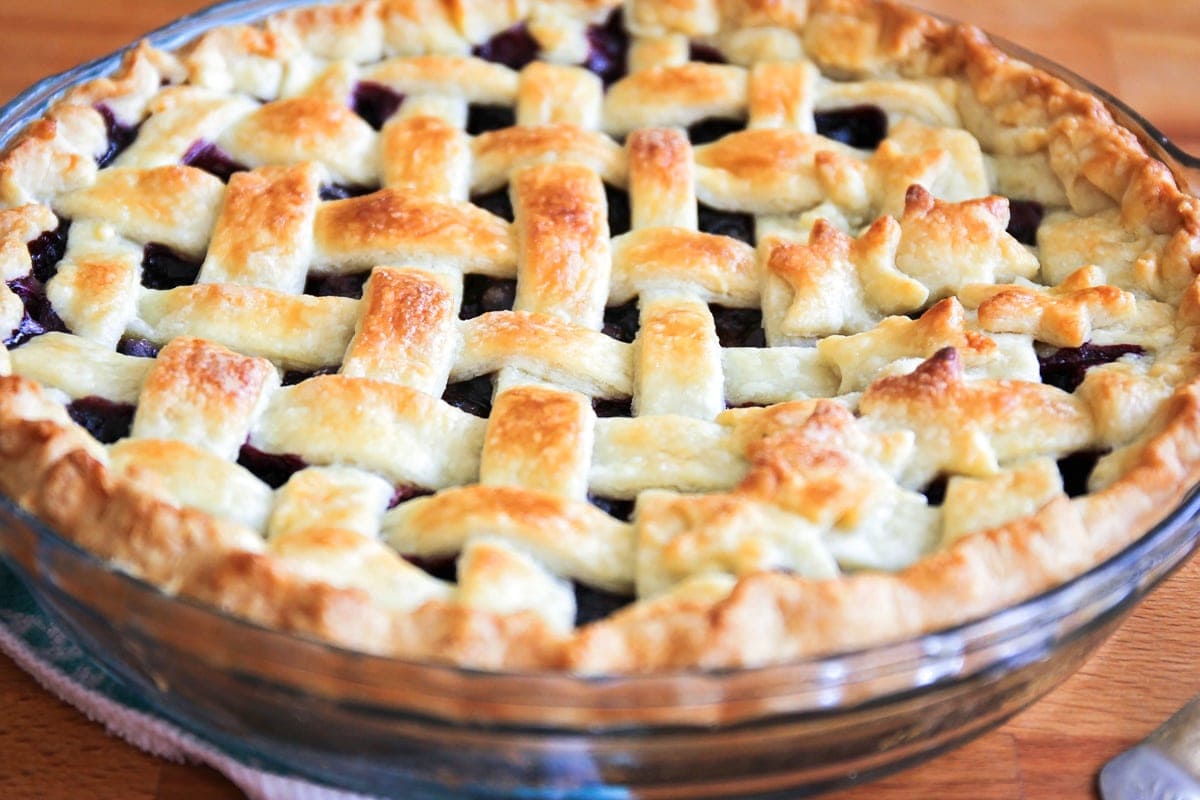
We love Pie!
There’s something about a pie with a crispy, golden-brown crust to balance out the warm, gooey filling that is just so comforting and delicious! Whether you’re making a classic Pumpkin Pie or Pecan Pie, trying a new recipe like Oatmeal Pie, or whipping up one of our favorites, Chocolate Cream Pie, you’ll want a perfectly baked, flaky crust—not a soggy one! First, you need a failproof pie dough, and that’s where our Easy Pie Crust comes in. We love this one because it only requires five ingredients and is SO simple to make!
What causes a soggy pie crust, anyways? One big reason is too much moisture from the filling, especially in fruit pies, like Apple Pie or Cherry Pie, where all those delicious juices can seep into the crust while baking. Another issue is using a crust that hasn’t chilled long enough, which can make it hard for the crust to hold its shape and get that nice crispiness in the oven. But no worries—we’ll cover how to avoid these issues soon!
Why We Love Pie:
- A Satisfying Challenge. Baking a pie can be a rewarding and challenging culinary experience. From mastering the perfect crust to creating a flavorful filling, the process of making a pie can be both satisfying and fulfilling.
- A Holiday Staple. Pies are a beloved tradition during many holidays, from Triple Berry Pie at Thanksgiving to Boston Cream Pie at Christmas.
- A Comforting Treat: A warm, homemade pie is the ultimate comfort food. It’s the perfect way to end a meal or celebrate a special occasion.
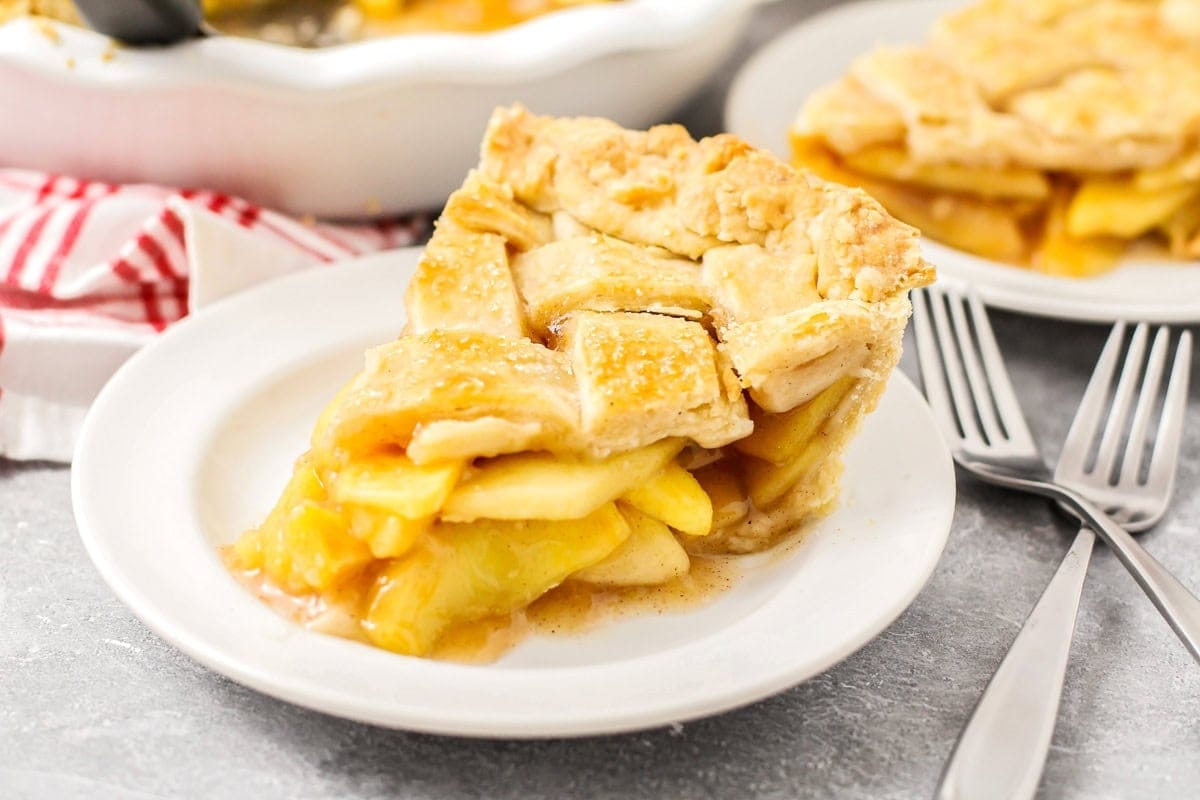
How to Avoid Soggy Pie
Use Cold ingredients
Using cold pie dough is key to achieving a flaky crust. Let the dough chill in the fridge for about an hour, or if you’re low on time, throw it in the freezer for 30 minutes. For even better results, let your filling cool in the fridge before combining it with the dough. This helps prevent the crust from becoming soggy while it bakes, making sure you get a perfectly crisp and flaky texture every time.
Use Tart Apples
Of course this is only helpful for pies with apples, like Dutch Apple Pie, Apple Crumble Pie, or just good ol’ Apple Pie! Using tart apples, like Granny Smith, usually creates less juice while baking than sweeter ones and helps keep your crust from getting too soggy.
Brush an Egg Wash on top
Use a pastry brush to apply egg wash, or even just egg whites, on the bottom crust before adding the filling helps create a barrier to keep it from getting soggy. We typically sprinkle all-purpose flour over the egg wash, too. The egg whites dry as it bakes, giving your crust some extra protection.
Create a Barrier
Sprinkling a thin layer of breadcrumbs or crushed cereal over the bottom crust before adding the filling can help soak up any extra moisture. You can also brush melted chocolate on the crust if it complements the flavor of your pie. It’s a simple trick with items you probably already have in your pantry to keep your crust from getting soggy.
Vent the Pie Properly
This allows steam to escape during baking. A lattice topping naturally creates vents, and let’s face it, they looks so good! A solid top requires a bit more effort. For that, make 4 to 5 evenly spaced cuts, about ¾ to 1 inch each, arranged in a circular pattern toward the center. This will help ensure your pie bakes perfectly!
Use a Metal Pie Pan
Metal conducts heat better than glass or ceramic, which means your crust will cook more evenly and stay crispy. Glass pans can take longer to heat up, leading to soggy bottoms, especially with wet fillings.
Blind Baking
Blind baking is a great way to avoid a soggy crust, and it just means pre-baking your pie crust before adding the filling. This method works well for a pie that has more moisture in the filling, like custard pie, fruit pie, or cream pie. To keep the crust from puffing up, you can use pie weights, but if you don’t have those, uncooked rice, dried beans, or even another pie pan will work just fine. Just line your crust with parchment paper, fill it with whatever you’re using as weights, and bake until it’s lightly golden.
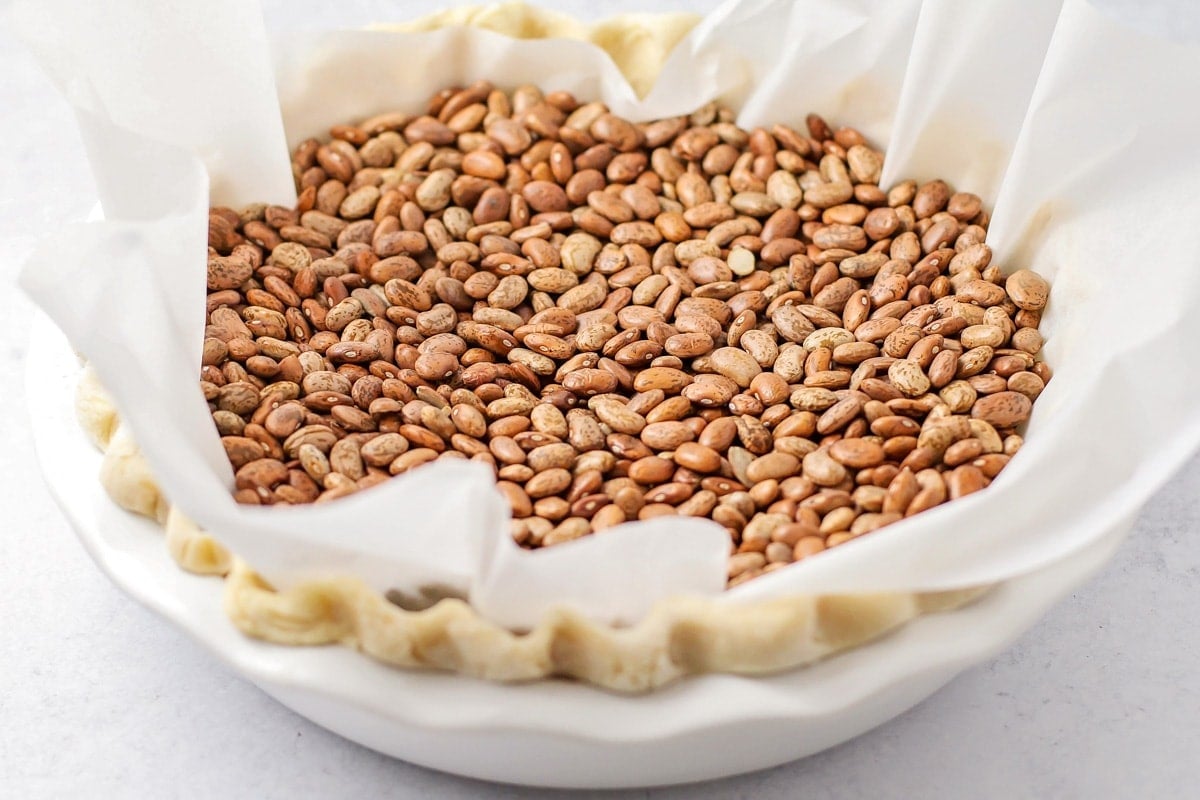
More Like This
Kitchen Tips
How To Make Pumpkin Puree
1 hr 45 mins
How to Measure Flour
Recipe Video
How to Soften Butter Quickly
10 mins
Pie Recipes
Pie Bar recipes
FAQs
Not every pie requires blind baking, but it’s a good idea for pies with wet fillings, like custard or fruit pies, to help ensure a crispy crust.
Egg wash gives your crust a beautiful golden color and a nice shine, while water will not provide the same effect. An egg wash can also help seal the crust to prevent moisture from seeping in.
A perfectly baked pie crust should be golden brown and firm to the touch. If the edges start to brown too quickly, you can cover them with aluminum foil to prevent burning.
